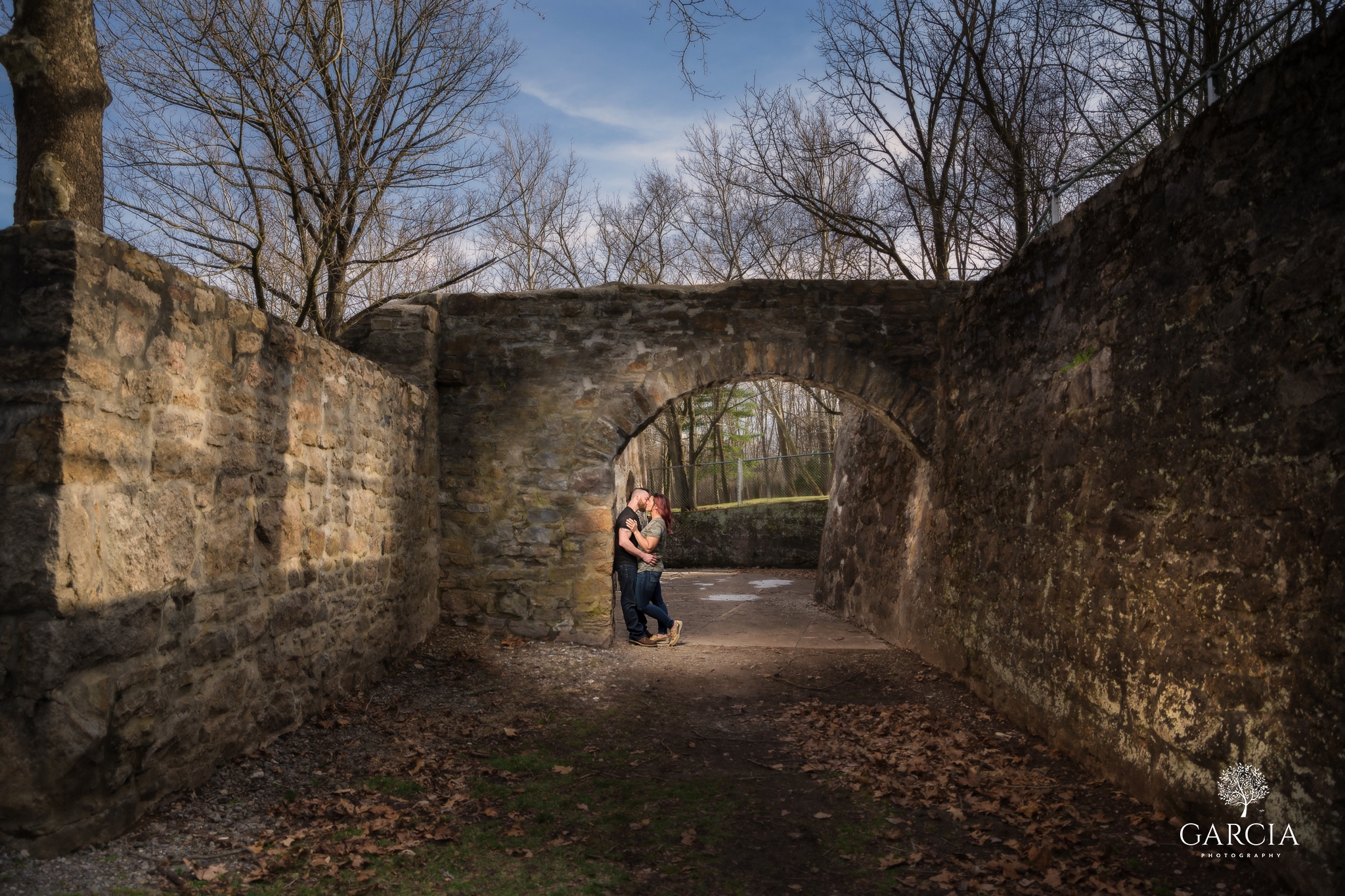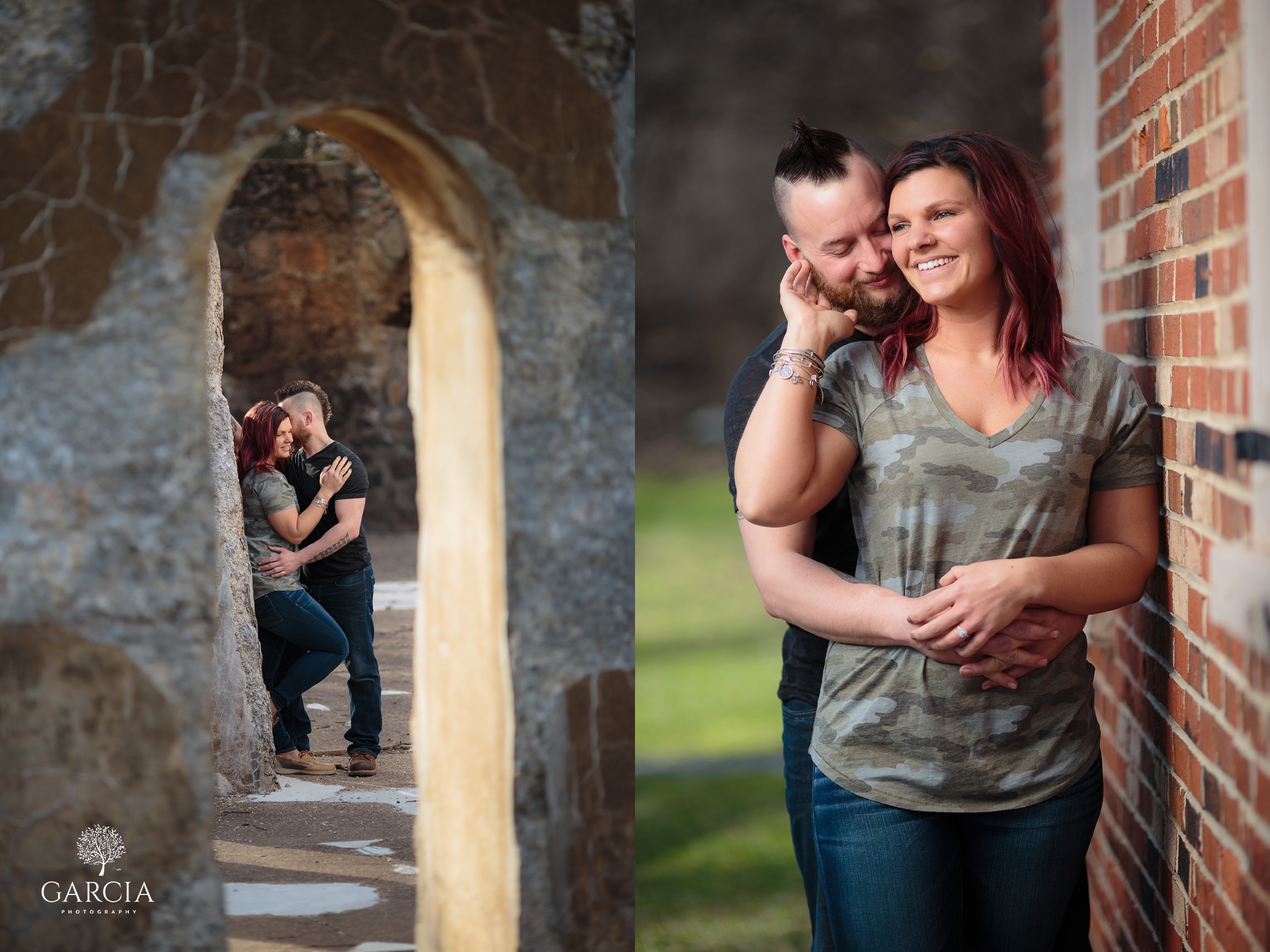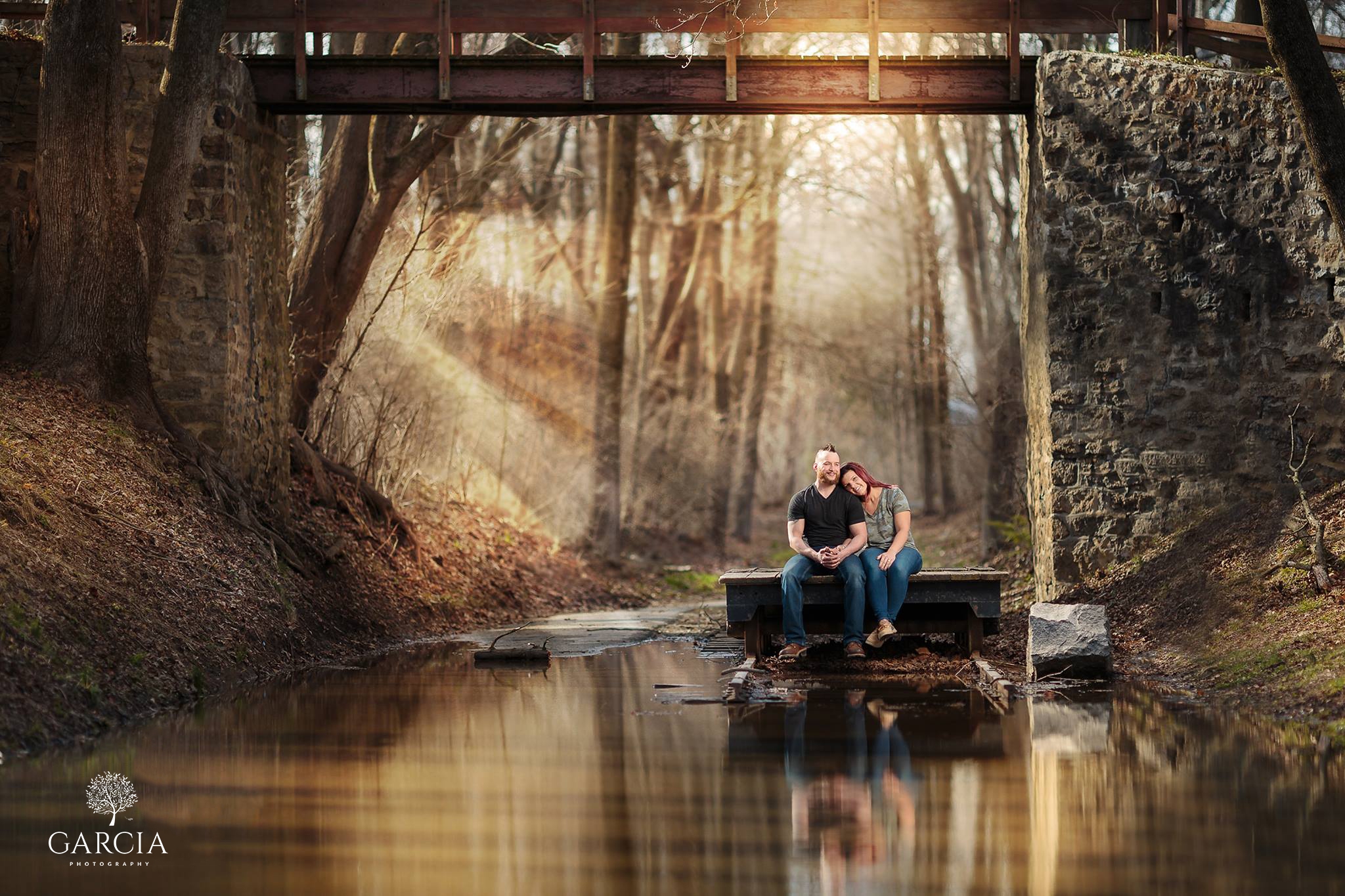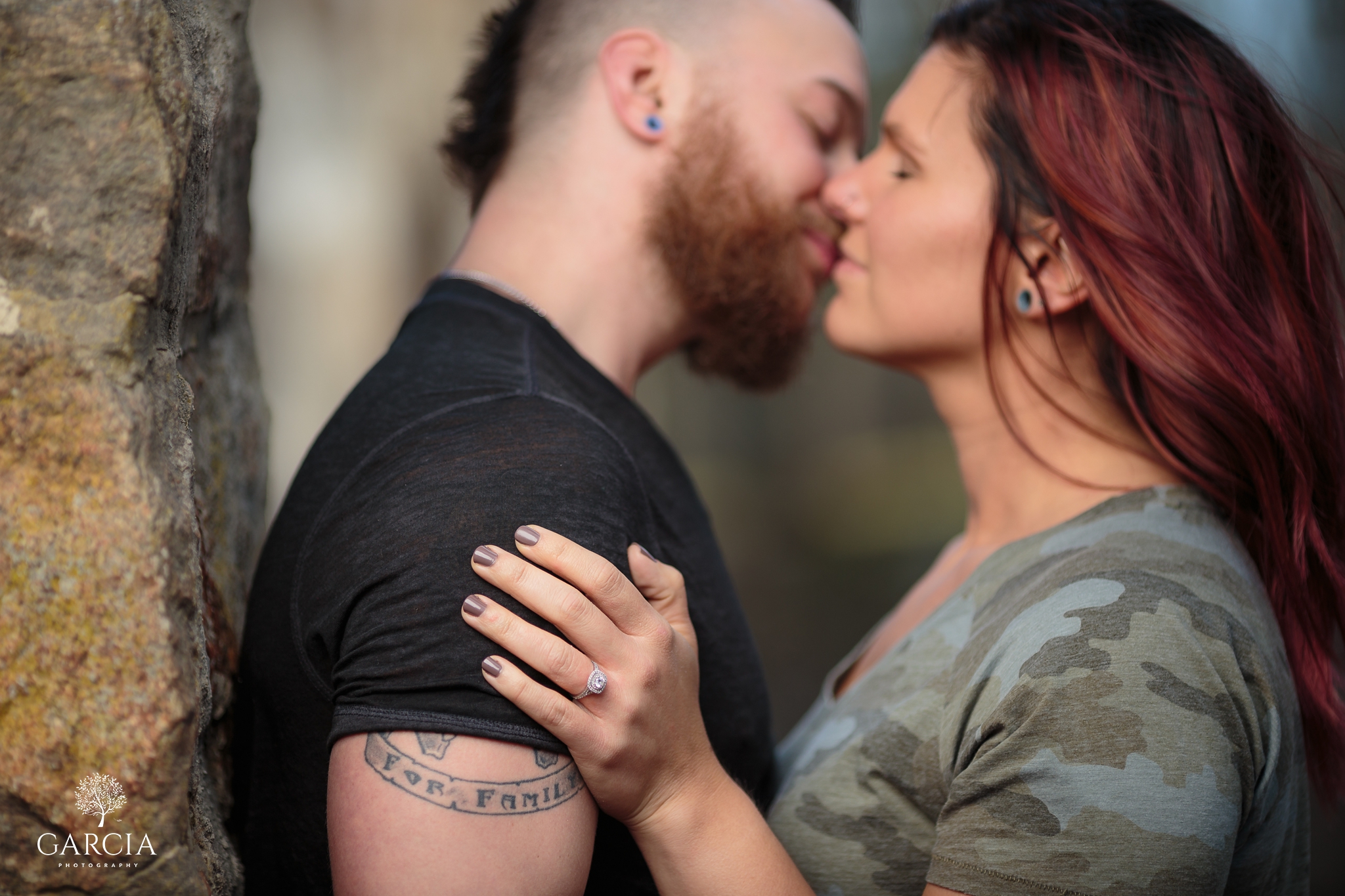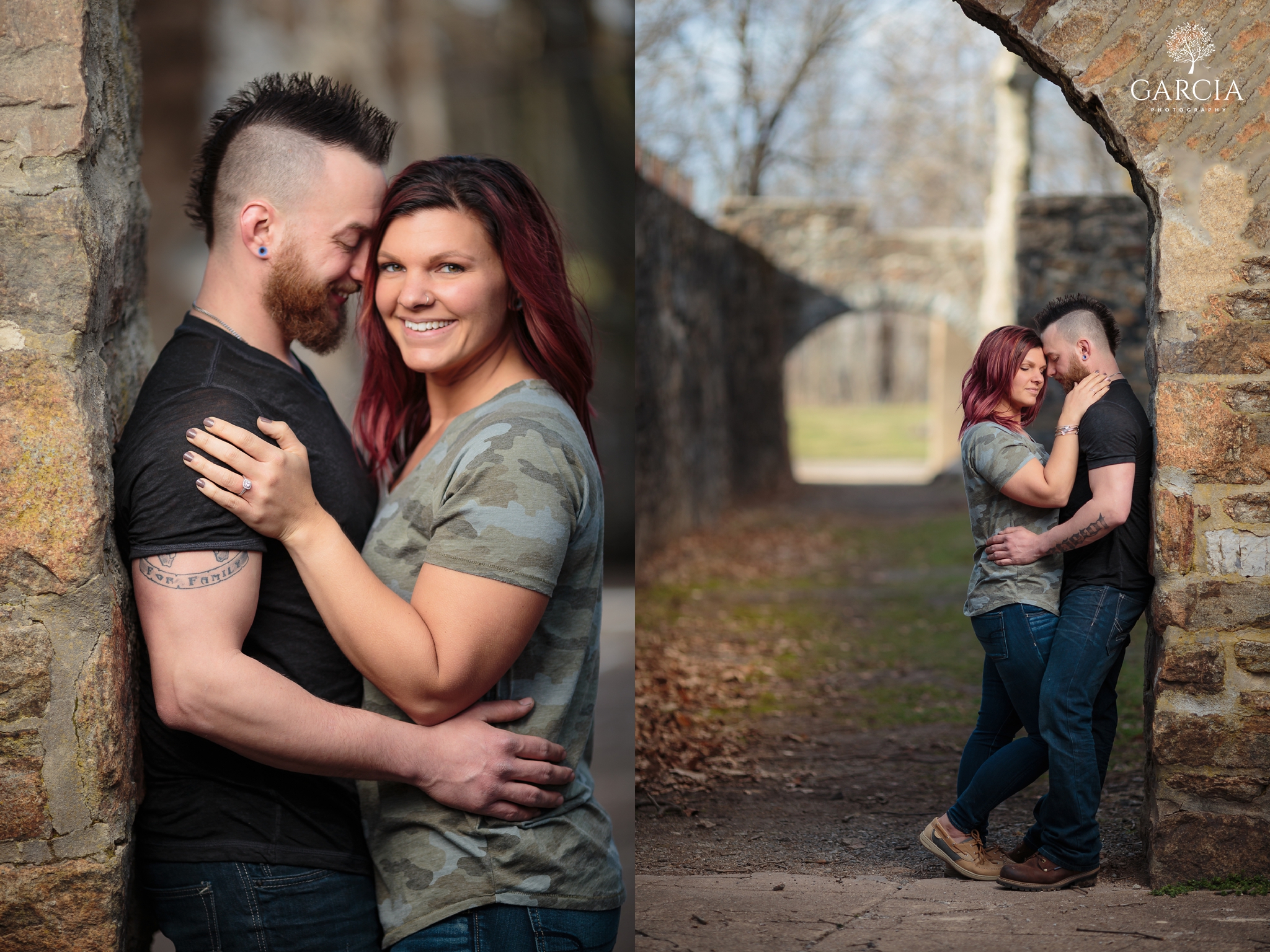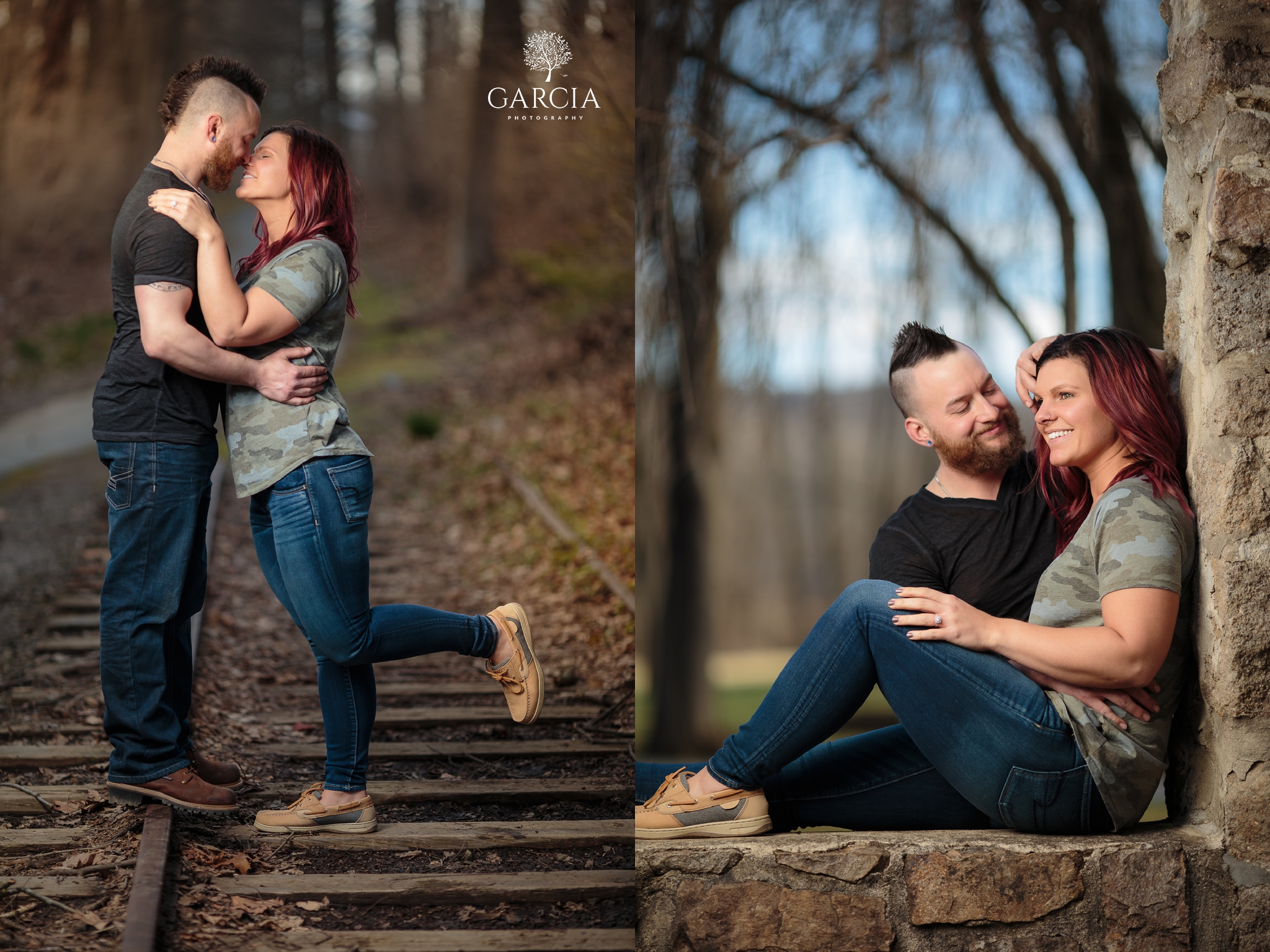It was a perfect spring day for Mindy + Ben's love story session at Lockridge Park. The stone, leaves and trees were a lovely backdrop to put their love on display. Below are some our favorites from out time together.
3 Reasons Why You Should Print Your Wedding Images
For the last three weeks we have been covering what we feel are some important topics related to your wedding photography. We started by going over some questions you should ask your photographer, things to keep in mind when preparing for your wedding day images and last week we covered how creating a timeline will help ensure the best possible wedding images for you and your partner.
In this fourth and final week we want to cover a topic that sometimes can get overlooked in the fast-paced digital world we live in - printing your images.
Printing your images is important because technology changes fast, hard drives fails and printed images are easier to enjoy regularly.
#3 Technology Changes Fast
10x10 Leather album with crystal cover in a velvet lined presentation box. Learn More
Remember floppies? Maybe you’re not old enough, but there once were these little square disks called floppies that held no more than 1mb of data and were so ubiquitous that software manufacturers would sell their applications on them. I still remember installing my first version of Windows using a few floppy disks. That was ages ago and today you would be hard-pressed to find a modern computer with anything resembling a floppy disk. Why? Because technology changes and the old gets phased out. Today we have a new kind of floppy it’s called the cd or dvd. And guess what, it’s being phased out too. Did you know that Apple no longer includes dvd drives in in their desktop models and some of the laptops. They are slowly being phased out due to the ease of downloading content from the internet. So think about this scenario. You’ve been married for 10 to 15 years when you are sitting around your fireplace and your kids want to see your wedding photos? You think to yourself, “hmm now where is that dvd the photographer gave me..?” I know what you’re thinking, that dvd is long gone and even if you were to find it how in the world are you going to open it. Imagine all the photographers that gave their couples their images on a floppy disk, how in the world are they going to open them today? Hopefully you see the point I am trying to make, technology changes and there is no guarantee that a dvd or cd you get today will actually be viewable in the future. Printing your images is the only guarantee that you have (as long as you take care of them) that you will be able to show your kids the funny hairdo and clothes you wore back then when you got married. We believe so strongly in printing images that in almost all of our curated wedding collections we include a wedding album with a presentation box.We feel it is our responsibility to provide that for you and your family to cherish now and into the future.
Heirloom wooden photo box with 100 4x6 prints and a usb drive. Learn More
#2 Hard Drives Fail
Back in 2005 we moved to Texas and lived in El Paso for a year and half. My oldest boy was only three years old and our baby girl was just born.. My wife and I loved taking many pictures and saving them to our computer and our external hard drive so we could carry the images with us anywhere we went. Like all young couples living in the new digital era we did not feel the need to print the images since they were safely stored on our expensive external hard drive. One day as we we plugged the hard drive into our computer nothing happened. We waited for the drive to appear on the desktop but nothing. We unplugged it, plugged it back in and still nothing. We moved it to another computer and still nothing. At that point our hearts sank at the thought that we had lost all of those images. After an agonizing few hours of research we discovered that the hard drive had indeed failed and that we could not recover those images. Had we printed those images at least we would have them to enjoy today but we didn’t so we don’t. This is another reason why printing your images is important, hard drives fail and unless you have lots of disposable income and can send them away to attempt recovery you will have lost those images forever. While we still use hard drives to store our images we store them in multiple locations and online to make sure this never happens again - but more importantly we now also print our images just to be sure.
#1 They are Easier to Enjoy
Imagine you are walking downstairs on a Saturday morning to grab your coffee and you notice the early morning sun filtering through your living room window and onto your wall. That early morning sun just happens to hit your wall right where that large wall portrait of your engagement day is hanging above your loveseat. You stop and look at how the light is softly caressing the frame and over into the image and you start to reminisce about that day and how much you loved every moment. You sit down and to have your coffee and then, prompted by those memories, you take out your wedding day album and start flipping through it to see how amazing your day was. Tears begin to fill your eyes at the sight of an old friend you haven’t seen in years and then you smile as you see a photo of your husband with that big smile and think to yourself - such an amazing day and such an amazing memory. Now think about this - what if you didn’t have the wall art and what if all you had was an aging dvd sitting on your shelf collecting dust? A dvd that as the years pass by provided no enjoyment and no guarantee that you would be able to open it and view it’s contents. Which of those two experiences would you prefer? I think we can both agree the first one is more desireable. Printing your images is important because images are meant to be enjoyed, looked at and pored over - not once but over a lifetime. When you visit our design studio you will notice something different. It is not set up as a studio or as an office - rather it is setup as a living room. We have a loveseat, coffee table with some leather bound albums on it, some table lamps and some beautiful framed wall art. We want you to see how it feels to be surrounded with works of art that feature beautiful couples like you and your future spouse. We want you to enjoy your own works of art now and for a lifetime that’s why we encourage printing your images.
Over the last four weeks we have covered a number of topics which we hope have been helpful to you in preparing for your wedding day. Whether it’s questions for your photographer, preparing for your images, creating a timeline or printing your images we hope that you are better prepared as you go on to your wedding planning. If you need any advice or direction feel free to reach out to us for a consultation at no cost to you - we enjoy helping couples whether we are there photographer or not.
3 Wedding Timeline Tips You Should Know
In the last two articles we covered important questions to ask your photographer and preparing for your wedding images. Hopefully those two resources offered some help to you as you plan your wedding day. In this article we will tackle the all important timeline and why it is critical to ensuring you get the best possible wedding images from your photographer.
How many horror stories have we all heard about weddings that were riddled with scheduling and timing problems? They are a dime a dozen and most likely a result of a failure to properly plan for each portion of the day. We understand that accidents happen that are out of your control however by creating a timeline you give yourself ample time to deal with some or all of those wedding day surprises.
Here are some practical tips to follow when preparing your timeline:
#3 Write it Down
I know this sounds obvious but trust me it’s important because on your wedding day there will be so many details to handle and trying to remember each one is impossible. Writing it down also forces you to see where there might be scheduling or time conflicts. One area couples fail to plan for is travel time from the preparation to the ceremony location and from there to the reception. This is especially important if you are getting ready in a different part of town than your ceremony or reception. Writing it down also allows you to share it easily with everyone that needs to know - especially your photographer. Part of the task we undertake with our own couples is a timeline consultation where we invite the couple to our office to go over and plan the timeline with them. This helps us guide them in terms of how much time they should allocate for getting ready images, formal images, family images and more.
#2 Include Contact and Address Information
Your wedding day will be an amazing, beautiful, magical day filled with many emotions. The last thing you want to be doing is texting the photographer the phone number of the dj or calling the host at the reception venue to give her the florist’s name and phone number. That’s why it’s important to include everyone’s name, phone and email in your timeline as well as the name, address and phone number of all the venues including the church and reception hall or country club. Having this information with your timeline will reduce the number of times you have to pick up your phone to answer a question about a person or a place that is important to your wedding day.
#1 Pad your Time Allotments
If you think you will only need 30 minutes for hair add an extra 15. If you think you will only need 45 minutes for family images add another 20-30. Padding your time allotments will give you, your bridal party and everyone else involved time to get to and from the locations where the images will be taken, it will also give your photographer time to setup and test his/her equipment and it will provide a little extra time in case someone has to use the bathroom between portions of your day.
Creating a timeline that is written down, includes contact and address information and has padded time allotments will help in ensuring you give your photographer enough time to document all the portions of your big day. Can I give you a little inside secret about wedding photographers? We love weddings, we love the details, the excitement, the emotion and the people. We love the idea of documenting all those special little sentimental, romantic things that we see and encounter at weddings. Want to know another little secret? A little piece of us dies inside when we have to rush from place to place due to improper planning. Not because we are control freaks, but because it does not give us a chance to capture all those little things I just mentioned. When you create a good timeline you not only do it for yourself but also to help your photographer create the best possible images of the most important day of your life.
3 Ways to Prepare for your Wedding Photos
I hope last week's article was helpful in preparing for your wedding photographer interviews. Having a good set of questions is critical when choosing the right photographer to document such an important day for you.
This week we are going to give you some recommendations and ideas on how to practically prepare for your wedding photos.
#3. Make a list with your photographer.
Nowadays it is very common for brides to save their favorite image ideas for their wedding day on Pinterest. While this is helpful to the photographer to give them an idea of what kind of photography you like it is a little more challenging to use on the actual wedding day. One very effective way to make sure your photographer does not miss any of your must have images from your wedding is to create a wedding shot list. A wedding shot list consists of a variety of important or significant moments or items at most weddings. A good shot list will include a list for photos with family, of the wedding party and of all the special little details throughout the day. Most experienced photographers should have a shot list they can provide to you. We provide all of our brides a paper and electronic shot list they can submit to us which we will use on their wedding day, to make sure we do not miss anything. Have a look at a sample list we provide to our couples.
#2. Request an engagement session.
Engagement sessions are not only fun but are very useful as a way to practice for your wedding day. During the engagement session the photographer will be able to learn how you and your partner interact, your dynamic and any special little quirks to avoid on the wedding day. It is also a time for you and your partner to learn how your photographer communicates and what to expect on your wedding day. We love engagement sessions because it gives us time to work one-on-one with our couples in a relaxed environment and without being in a rush. During the session we like to experiment with creative ways to showcase their love and it gives us a chance to build a rapport with the couple. That rapport helps remove any of the awkwardness the couple might feel in front of the camera. Have a look at our engagement portfolio for some fun ideas of what is possible during this special photography experience.
#1. Relax and enjoy your day.
I know you're probably thinking, sure that's easier said than done. And trust me I know how crazy wedding days can get. But we believe you can find pockets in the day that will allow you to stop, breathe deeply and just take it all in. Why is this important for your wedding images? Because your wedding images will be much better if you look relaxed and like you are enjoying yourself. One thing we like to do with our brides to help them relax is to ask all the bridesmaids and helpers to leave her alone in the preparation room with us for a few minutes. Once everyone leaves the tension in the room is reduced significantly and we can then do a very quiet and intimate portrait session with her before she leaves for the ceremony. During that time my partner and I will reassure and help her to refocus on what's most important - her and her groom. This also allows us to create beautiful images of a relaxed and refreshed bride. So relax and enjoy your day - after all it is Your day.
We trust this week's article was helpful and insightful. If you have any questions related to getting ready for your wedding images feel free to contact us.
In the next installment we will be discussing Creating a Timeline for the Best Possible Wedding Images.
5 Questions to Ask Your Wedding Photographer
First let me just extend a big congratulations on your recent engagement! I'm sure it was a beautiful surprise filled with laughter, tears and lot's of love! Now let's get to the wedding planning.
We are super excited to be able to share some insights that will help you plan your wedding better and take some of the guesswork out of your wedding photography research. In this installment we will be covering: Questions to Ask Your Photographer.
Planning your dream wedding can be an overwhelming task. From finding a venue to booking your dj, many meetings, decisions and lists have to be made and finding a photographer seems like a mountain of task all by itself. Our hope is that by reading these articles you will be better equipped to check some items off your list with confidence.
So let's begin by looking at 5 important questions you should have on your list when interviewing your wedding photographer.
#5: Do you have insurance?
All professional photographers should carry insurance. Most reputable venues will require it and you should too. Insurance is meant to protect you and the photographer should an accident occur at your ceremony or reception. This type of insurance is called Liability Insurance and most venues will require at least up to $1,000,000 of coverage. If a photographer does not have insurance, it does not make them a bad photographer, just a bad business person. As an example we carry up to $2,000,000 of Liability Insurance and we are also covered by an Indemnification Trust provided by the Professional Photographers of America - this is additional coverage which covers data recovery, equipment and other items. We do this to protect our business but also because we care about you and your wedding day. Should anything go wrong (and we hope nothing does) you should feel confident that your photographer is fully covered which is why this should be one of your questions.
#4: What kind of equipment do you use?
The type of camera a photographer uses says a lot about how serious they are about documenting weddings. While a good photographer can use entry-level cameras and lenses to capture beautiful images, it is unlikely he/she is not a very serious photographer if they are not investing in their craft by acquiring better gear. Crafting quality images that can be used in wedding albums and large signature wall art requires equipment that is high-quality, durable and can deliver results in the various complex lighting scenarios found at most weddings. For example we use full-frame camera bodies and professional quality lenses which can perform very well in bright or low light. We also carry backup camera bodies, flashes and lenses. Some photographers will tell you that gear does not matter but that simply is not true. It may not matter if they are a hobbyist without much on the line but it does matter because it is the most important day of your life - your wedding day.
#3: Will you be photographing my wedding?
This seems kind of obvious right? But it's important that the photographer you are interested in is the same person covering the most important day of your life. You should ask this because sometimes photographers use second shooters or assistants or in rare cases overbook the same day and end up having to send less experienced photographers to document a wedding. Each photographer has a different style and approach and you want to make sure that you are getting what you paid for.
#2: How long does it take to receive our images?
Who doesn’t want to see that funny picture of the bridesmaids or the amazing first look picture under the tree as soon as they can? It’s only natural to want to see them all right away. If a photographer can't tell you with somewhat precision when you will get your final images that should be a big red flag that they have not documented enough weddings. You want a photographer that specializes in wedding photography because this means they will have documented enough weddings to understand how long images will take to process, retouch and prepare for print and the web. For example we promise our brides that we will have previews of select images sent to them within 24-48 hours of their reception. Most times we are so excited we will do what is called a Same-Day-Edit so you can see some images as you board your plane to head to your romantic honeymoon. We also have a delivery date in our contract for the digital images and for the final heirloom album. Those are all spelled out clearly because we know how long each will take based on the size of your wedding and time of year we are photographing it.
#1 How much do you charge and what's included?
This is probably the most important question for most couples because they are all working with budgets for so many other items. Your photographer should have very specific details about what they will be providing you on and after your wedding day with pricing to match. When you leave your initial consultation you and your fiance should know exactly how much you will have to pay for each collection, what is included in that collection and what type of deposit or retainer is required to book the photographer. If your photographer cannot provide these details this is a huge red flag and we recommend you not book with that photographer regardless of how beautiful his or her images appear. For example we provide all of our prospective couples with a Wedding Information and Pricing guide that shows our collections, prices, what's included, what to expect before, during and after the wedding and more. This is all provided as a pdf and online link to make it easy to read and digest. When we formulate our contracts we use the exact same verbiage and details as our pricing guide to describe what the couple will be receiving and how much they will be paying. If your photographer provides you with anything less, that should send up some red flags as well.
Of course there are many more questions you could ask but these are some of the top questions you should have on your list as you interview prospective photographers.
We trust this article was helpful and insightful. If you have any other questions feel free to contact us.
In the next post we will be discussing how you should prepare for your Wedding Images.


